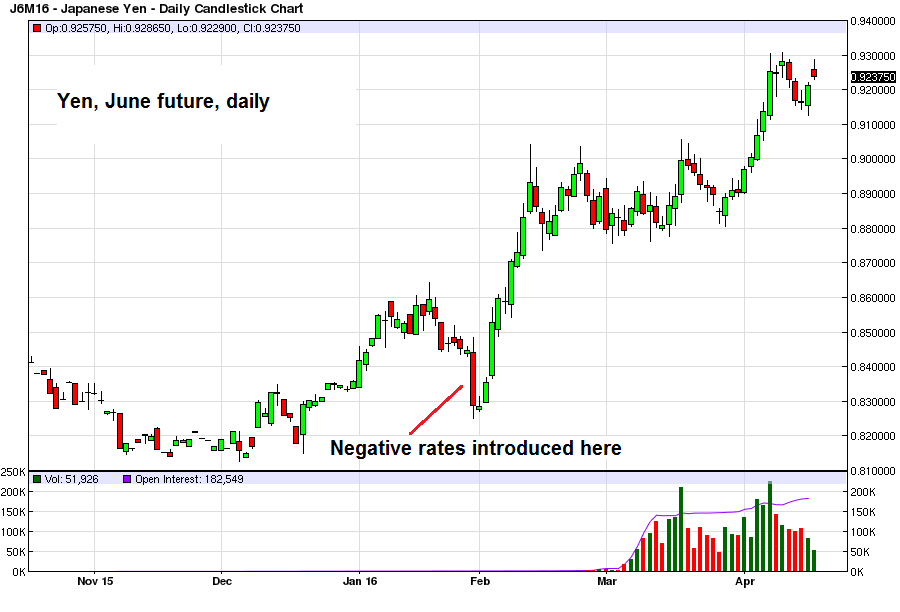Wicked Don Giovanni GUALFIN, Argentina – Tuesday evening, we went to the main opera house in Buenos Aires, the Teatro Colón, to see Mozart’s Don Giovanni. On our way over, our taxi driver told us that Luciano Pavarotti rated it as the second best opera house in the world (after La Scala in Milan). The Teatro Colón in Buenos Aires. Sorry, chaps, only second best. Still, that makes it the best this side of the great pond. Photo credit: Arnaldo Colombaroli Your editor’s wife has a tendency to try to improve him culturally by insisting that they go to museums, ballets, concerts, plays, or operas together. Your editor goes along with good grace but has a tendency to fall asleep. But the story (better known as Don Juan)… the theatre… and Mozart’s music were all so magnificent that our eyes and ears remained wide open. Don Giovanni is a wicked cad. He seduces hundreds of women all over Europe. And two women succumb to his charms, on stage. Two couples are put to the test as Don Giovanni leads the women astray. But somehow (it was not clear to us exactly how or why), the infidelity is forgiven… and Don Giovanni is struck down. We found the ending weak and unconvincing, but we’re not going to argue with Mozart. At least, not today. Photo via operavivra.
Topics:
Bill Bonner considers the following as important: Debt and the Fallacies of Paper Money, Featured, newslettersent, On Economy
This could be interesting, too:
Vibhu Vikramaditya writes Navigating the Slippery Slope: How Hoover’s Interventions Paved the Way for the Great Depression
Ryan McMaken writes Frédéric Bastiat Was a Radical Opponent of War and Militarism
Douglas French writes Millennials: In Costco We Trust
Joseph T. Salerno writes What Fed “Independence” Really Means
Wicked Don Giovanni
GUALFIN, Argentina – Tuesday evening, we went to the main opera house in Buenos Aires, the Teatro Colón, to see Mozart’s Don Giovanni. On our way over, our taxi driver told us that Luciano Pavarotti rated it as the second best opera house in the world (after La Scala in Milan).

The Teatro Colón in Buenos Aires. Sorry, chaps, only second best. Still, that makes it the best this side of the great pond. Photo credit: Arnaldo Colombaroli
Your editor’s wife has a tendency to try to improve him culturally by insisting that they go to museums, ballets, concerts, plays, or operas together. Your editor goes along with good grace but has a tendency to fall asleep.
But the story (better known as Don Juan)… the theatre… and Mozart’s music were all so magnificent that our eyes and ears remained wide open. Don Giovanni is a wicked cad. He seduces hundreds of women all over Europe. And two women succumb to his charms, on stage.
Two couples are put to the test as Don Giovanni leads the women astray. But somehow (it was not clear to us exactly how or why), the infidelity is forgiven… and Don Giovanni is struck down.
We found the ending weak and unconvincing, but we’re not going to argue with Mozart. At least, not today.
Wicked cad: Mariusz Kwiecien as Don Giovanni (here you can see and hear why he is considered the leading Don Giovanni of today), Malin Byström as Donna Anna and Véronique Gens as Donna Elvira in a Royal Opera House production. There are actually two alternative endings to Don Giovanni (a happy ending, and one in which the good Don simply ends up in hell), in fact there are two alternative versions of it, both equally authentic. Mozart wrote the first version (happy ending) for the premiere in Prague, and the second for the premiere in Vienna. Today one usually gets to see a mish-mash of the two versions, with the choice of ending depending on the director.
Curiouser and Curiouser
Yesterday, we rose before dawn to take a flight from Buenos Aires to Salta, a city in the northwest. Now, we are at the family ranch… a roughly four-hour drive away. The farm will occupy much of our attention over the next three weeks. But this morning, we are still trying to make sense of the world we left behind.
That world just gets, as Alice remarked of Wonderland, curiouser and curiouser.
Last week came news that the World Bank was lending more than ever before… that Japan had decided to go even fuller retard with even more negative interest rates…and that the International Monetary Fund, the mother hen of central banking, was urging her little chicks further into the fox’s den.
Reports newswire service Reuters:
“The International Monetary Fund said on Sunday that a move to negative rates by some of the world’s central banks would help deliver extra monetary stimulus and ease lending conditions. Six of the world’s central banks have introduced negative rates, most notably the Bank of Japan and the European Central Bank, and around a quarter of the world economy by output is now experiencing official rates that are less than zero.
“Although the experience with negative nominal interest rates is limited, we tentatively conclude that overall, they help deliver additional monetary stimulus and easier financial conditions, which support demand and price stability,” the IMF’s financial counselor and director of monetary and capital markets, Jose Vinals, wrote in a research paper.”
The IMF’s Jose Vinals – in the background it says “financial stability”, so this is presumably a snapshot from his second career as a stand-up comedian. Meanwhile, in his main career, he apparently isn’t even able to get his facts straight. We are used to the IMF’s well-documented utter inability to forecast the future, but now they apparently can’t even forecast the past anymore…
Loony Lending
We don’t now know where Mr. Vinals got his facts… but they don’t stack up. Since the Bank of Japan first announced negative rates, on January 29, the yen has strengthened, not weakened.
Since then, the yen has gained 11% against the dollar… making it the second-best performing major currency (behind the Brazilian real). And Japanese stocks, as measured by the Nikkei, are lower, not higher. Since January 29, the Nikkei has plummeted 3.5%. That compares with a gain of 7% for the MSCI World Index (a good proxy for world stocks).
The yen, daily. Someone better show Mr. Vinals this chart before he writes another paper… – click to enlarge. |
 |
But the looniest of all the news last week came from Europe. Two Belgian banks are paying people to take out mortgages. As Belgian newspaper Het Nieuwsblad reports:
“Getting paid to borrow money for your house. It seems too good to be true, but for some clients of [banks] BNP Paribas and ING, it’s not a dream but reality. The interest rate on their home loan has dropped below zero, and so they get money from the bank.
For those who closed a mortgage loan with a variable rate at BNP Paribas Fortis or ING in 2012 are now very lucky. Due to a decline in interest rates, the interest rate on their home loan has also fallen below zero. In other words, the banks pay their customers rather than collect interest.”
Although the news was not completely unexpected, it is nevertheless shocking. It is as though some invisible barrier had been crossed, separating the real world from the world of total make-believe, where down is up, yes is no, and every shiftless crackpot can now – apparently – live in a mansion for free.
11 on the Nutty Scale
A few months ago, we tried to understand negative mortgage rates as a hypothetical matter. We thought they were so loony, so daffy, that they couldn’t exist in the real world. But now…there they are…not exactly in the real world – but in Belgium!
 Belgium has been swallowed up by the Nutty Dimension (and not for the first time) and no longer inhabits the real world. Nowadays some of its banks are paying interest to their borrowers, as variable mortgage rates have been tied to Euribor, which in turn has gone negative due to the ECB’s imposition of negative deposit facility rates for banks.
Belgium has been swallowed up by the Nutty Dimension (and not for the first time) and no longer inhabits the real world. Nowadays some of its banks are paying interest to their borrowers, as variable mortgage rates have been tied to Euribor, which in turn has gone negative due to the ECB’s imposition of negative deposit facility rates for banks.
“How crazy is that?” is an expression of surprise and wonder. But there should be some metric… a quantitative measure (1 to 10 perhaps)… that allows us to figure out how just how nutty a given thing is. If there were such a scale, where would negative mortgage rates fall? At about 11 is our guess.
The world of finance is always a fantastic world. People can believe whatever they want. Should hot electric car maker Tesla sell at a negative P/E ratio – MINUS 917? Sure, why not? Should 10-year bonds issued by a bankrupt government run by madmen yield less than zero? Who knows?
When banks lend money to the government, the whole transaction is largely imaginary anyway. The money comes from nowhere. It is worth nothing. Why shouldn’t it be lent out for less than nothing?
The world of houses is different. It is real. Bricks and mortar. People live in houses. They cost money and time to build. They are actually…positively…no doubt about it…worth something.
But if you can get a negative-rate mortgage, the world turns upside down. It is as though the house had less than no value. You borrow $1 million at MINUS 1%. You buy a house. The bank pays you $10,000 a year to live in it!
How crazy is that?
Chart by: BarChart
Chart and image captions by PT
The above article originally appeared as “Banks Are Now Paying People to Take Out Mortgages” at the Diary of a Rogue Economist, written for Bonner & Partners. Bill Bonner founded Agora, Inc in 1978. It has since grown into one of the largest independent newsletter publishing companies in the world. He has also written three New York Times bestselling books, Financial Reckoning Day, Empire of Debt and Mobs, Messiahs and Markets.


